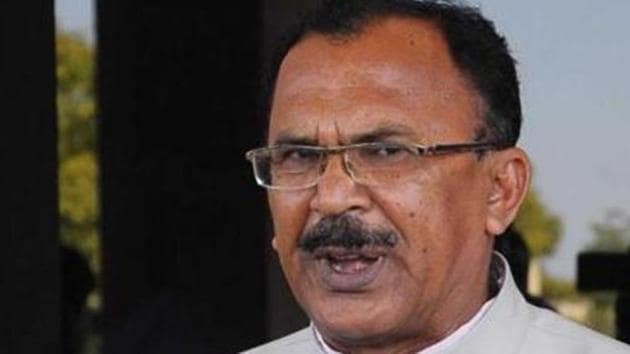‘Better emotional connect if mother tongue is used to teach’: NEP expert
Former Rajasthan education minister who was a member of a sub committee working on the new national education policy talks about some of its key aspects.
The new education policy (NEP) unveiled this week incorporates many suggestions given by Vasudev Devnani, the former education minister of Rajasthan. In an interview to Rakesh Goswami, he talks about the new policy and other changes in Rajasthan’s schools. Excerpts:

Q: As education minister of Rajasthan from 2013-2018, you were part of the core committee on NEP. The policy is out. How many of your suggestions find place in it?
A: First of all, I would like to thank Prime Minister Modi and his cabinet, especially (HRD minister) Nishank ji, for incorporating our suggestions in the NEP. They need to be congratulated for building an education policy, which will prove to be a milestone for the country.
I have only seen the summary of the policy so far, so I can’t put a number to suggestions that we gave and that the Dr K Kasturirangan Committee incorporated in the Draft National Education Policy but I can see at least three of our suggestions in the new policy. These are taking aganwadi centres to schools for pre-primary education, exams in primary schools for periodic evaluation and vocational training in schools. I was chairman of the sub-committee on no-detention policy and we suggested that students may be detained in primary classes based on their performance in exams. In fact, we started exams in Classes 5 and 8 for promotion. District Institutes of Education and Training (DIET) conducted Class 5 exam and the Class 8 exam was conducted by Rajasthan Board of Secondary Education (RBSE).
Q: Did you implement some of these suggestions in Rajasthan even before the draft NEP?
A: Like I told you, we brought back exams in primary classes. No-detention policy was affecting the quality of learning and our Board results bore the impact. The aganwadi centres were shifted to schools for pre-primary education. Students came to government schools at age 6 without any education whereas students going to other schools had studied in prep schools. So our students were deprived of education between 3 and 6 years. We moved 11,000 aganwadi centres to schools and principals were made their supervisors. We also started vocational education from Class 9. The NEP proposes to start this from Class 6.
Q: How do you see the move to have mother tongue as medium of instruction in primary classes?
A: In Rajasthan schools, the medium of instruction is Hindi. But maybe now, the teachers can also teach in local dialects. If someone uses the dialect that students speak at home, there is better emotional attachment with schools. I feel use of local dialects will also enhance the grasping power of students.
Q: You had also made suggestions about teachers training. Have those been incorporated?
A: It is a common phenomenon for graduates to get into B.Ed. courses because they cannot find a job. We don’t want such people becoming teachers. A person who wants to become a teacher should be passionate about teaching so we suggested a 4-year B.Ed. course right after Class 12. That has been accepted. This will save one year for the candidates – earlier they did graduation for 3 years and B.Ed. for another 2 years. We had also suggested amalgamating ITI, diploma into engineering courses – two years of ITI and diploma each and three years of engineering. I am yet to see if this has been adopted or not.
Q: Your suggestions have found place in the policy but back home, the Congress government is reversing your decision to merge schools. How do you see that?
A: The decision to reverse school merger is a political decision but the government has not been able to reopen many schools. We closed 21,000 schools due to the merger; the Congress government has reopened only 2,000. Because we did it in a scientific way, they haven’t been to reverse it fully. Also, it was because of the merger that today all gram panchayats in the state have a senior secondary school. When I became the education minister, there were 4,400 senior secondary schools in the state. We took it to 13,000. Because of the merger, we could best utilize the human resource and optimize infrastructure.






